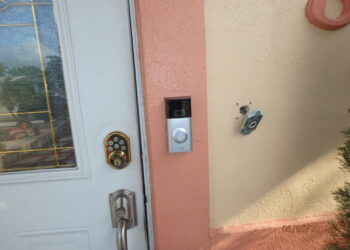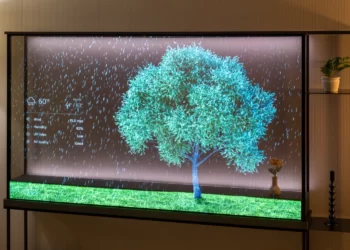Smart home automation has emerged as a game-changer in today’s environment when energy conservation is a major issue.
Table of Contents
Smart homes may drastically cut energy usage by integrating technology and energy-saving methods, resulting in financial savings and a greener future. In this comprehensive guide, we will look at a variety of smart home automation concepts and technologies that can help you improve your energy efficiency and save money. Let’s have a look at smart home energy savings!
Smart Home Energy-Saving Statistics
According to recent studies, smart homes can save 10-20% on average energy when compared to regular homes. These figures demonstrate the potential for significant financial savings and reduced environmental impact through smart home automation.
Understanding Smart Home Savings

Through connected gadgets and intelligent systems, smart home automation allows homeowners to monitor and regulate their energy consumption. Smart homes may drastically reduce energy waste and save money by managing heating, cooling, lighting, and appliance usage.
In What Ways Can Home Automation Help Customers Save Money?
Home automation provides various opportunities for energy savings and cost reductions. Homeowners can personalize and schedule their energy usage to fit their demands by using programmable thermostats, smart lighting systems, and energy-efficient appliances, resulting in significant savings on utility costs.
Energy-Saving Technology for Homes
Innovative energy-saving solutions in smart homes have been made possible by technological breakthroughs. These technologies, which range from smart thermostats that learn your preferences to energy monitoring systems that deliver real-time data, enable homeowners to make informed decisions and optimize their energy consumption.
Smart Home Savings Windows
Windows are critical to a home’s energy efficiency. Smart windows with sensors and automatic controls can control natural light, heat, and ventilation, minimizing the need for artificial lighting and HVAC systems. This results in significant energy savings while also providing a more comfortable living environment.
Do Smart Homes Use More Electricity?
In contrast to popular belief, smart homes are built to use energy more efficiently. Smart home automation enables homeowners to monitor and control their energy consumption, identify inefficient trends, and optimize their systems accordingly, resulting in lower overall electricity consumption.
How Much Energy Do Smart Homes Save?
The amount of energy saved in a smart home is determined by several factors, including the level of automation, the efficiency of the devices used, and human behavior. Smart homes, on average, can save 10% to 30% more energy than typical homes, resulting in significant cost savings.
Best Smart Home Energy Savings Devices
Several smart home technologies excel in reducing energy use. Nest and Ecobee smart thermostats provide accurate temperature management, adaptive learning, and remote access, resulting in optimum heating and cooling. Smart refrigerators and washing machines, for example, reduce energy consumption without sacrificing functionality.
Smart Home Energy Saving: Tips and Strategies
- Using programmable thermostats and smart HVAC systems, you can optimize heating and cooling.
- Make use of smart lighting solutions that include motion sensors and scheduling capabilities.
- Invest in energy-efficient appliances and smart electronics.
- Smart energy monitoring systems can track energy usage in real-time.
- To eliminate standby power and vampire energy drain, use smart power strips.
- Use automated window coverings to control natural light and heat.
- Use renewable energy sources such as solar panels and wind turbines.
- Integrate smart water management systems to improve water efficiency.
- Make use of smart home automation technologies to develop personalized energy-saving routines and scenarios.
Energy-Saving Automation Ideas for Smart Homes
- Temperature Control: Set your smart thermostat to regulate temperatures based on occupancy and time of day, assuring maximum comfort while minimizing energy waste.
- Lighting Automation: Use motion sensors and timers to turn off lights in unoccupied rooms and alter brightness levels based on available natural light.
- Appliance management entails enabling energy-saving modes on appliances and utilizing smart plugs to control their consumption remotely or according to predefined schedules.
- Install smart energy monitoring equipment that provide real-time insights into your energy consumption, allowing you to identify and reduce energy waste.
- Water Efficiency: Integrate smart irrigation systems and water leak detectors to improve water usage and prevent water waste.
Energy Regulating the Sun Year-Round
Throughout the year, smart home automation can optimize the use of natural sunlight. You may guarantee that your home receives an appropriate quantity of natural light by integrating motorized blinds or shades with light sensors and scheduling, decreasing the need for artificial lighting and saving energy consumption.
Your Home’s Energy-Regulating Potential
Your house has the potential to become an energy-efficient haven with the appropriate combination of smart gadgets, efficient technologies, and automation tactics. Smart home automation allows you to regulate and optimize your energy usage, resulting in significant savings, less environmental impact, and improved comfort.
What is a smart home technology that saves energy?
Smart thermostats are a prominent example of energy-saving smart home technology. These devices provide accurate heating and cooling control, learn your preferences, and automatically modify settings to optimize energy consumption while preserving comfort.
Does home automation save electricity?
Yes, home automation can minimize electricity use by allowing customers to monitor and control energy usage, automate lighting and appliance schedules, and optimize heating and cooling systems.
What is smart home automation for energy efficiency?
The integration of smart devices, sensors, and automation technologies to improve energy use is referred to as smart home automation for energy efficiency. It has functions such as automated temperature control, lighting management, energy monitoring, and efficient appliance utilization.
How can I make my smart home energy efficient?
You can make your smart home more energy efficient by doing the following:
Install programmable HVAC systems and smart thermostats.
Use motion sensors and timers in smart lighting.
Choose energy-saving appliances with smart features.
Smart energy monitoring systems can help you keep track of your energy usage.
Incorporate renewable energy sources such as solar panels.
Put in place efficient water management systems.
Make use of automation to develop energy-saving routines and scenarios.
Smart home automation provides numerous options for energy savings. Homeowners can cut their energy use, minimize utility bills, and contribute to a more sustainable future by applying the discussed smart home energy-saving concepts and technology. Accept the power of smart home automation and benefit from a more energy-efficient and cost-effective living environment.





![Top 10 Best Rechargeable Light Bulbs To Buy In [year] 6 best rechargable bulbs list](https://www.digitalphablet.com/wp-content/uploads/2023/08/8d6c90f3-488f-459c-8795-0da569b4bd9a.jpg)
